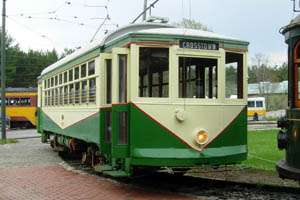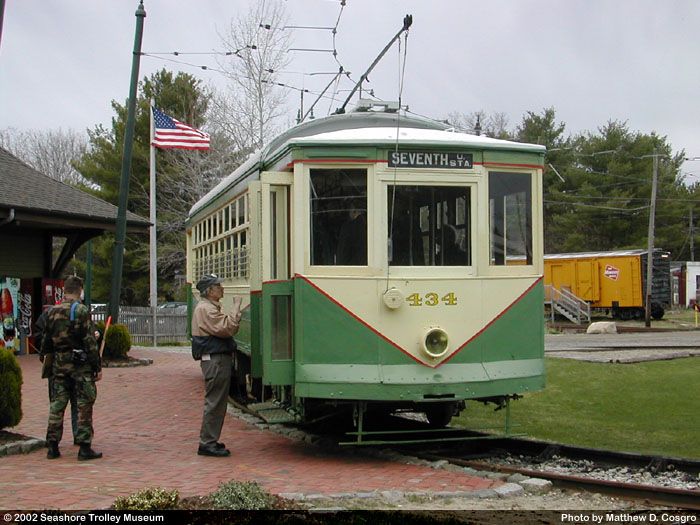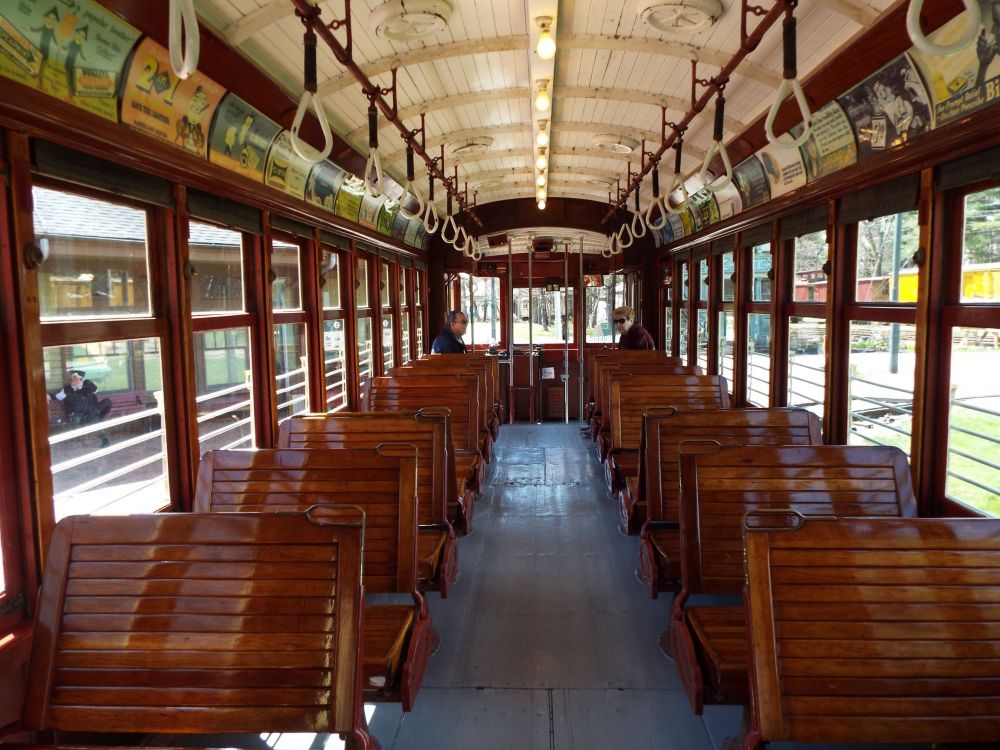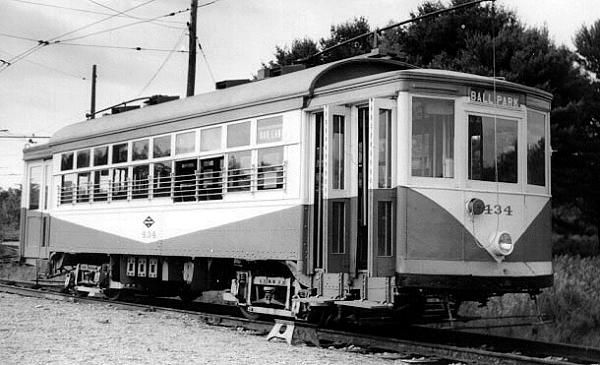
Matthew D. Cosgro
- Builder
- American Car Co.
- Secondary Use
- None
- Type
- City and Suburban Streetcars
- Year
- 1914
- Retired from Service
- 1954
- Acquired by the Museum
- 1954
- Fund
- 655
Dallas Railway & Terminal Co. 434
From Dallas, Texas
History
In 1911, the firm of Stone & Webster, then operating the Dallas and other streetcar systems, assigned Charles O. Birney to design a low cost, standardized car. This design, combining attributes of both high floor deck roof cars, and the later steel lightweights, became known as the Stone & Webster Standard Car and enjoyed widespread use on the company’s rails. Since many of these systems were marginal operations, the cars were discarded as buses took over in the 1920s and 1930s. Several years after designing the Standard Car, Mr. Birney designed the single truck safety car which is known as the “Birney Car.”
Stone & Webster acquired control of the Dallas Consolidated Electric Street Railway in 1902. After acquiring other Dallas streetcar companies in 1917, the merged companies became the Dallas Railway Co. In 1926, the name changed again to Dallas Railway & Terminal Co. The Dallas system purchased about 100 of the Standard Cars. No. 434 was a Standard Car built by American Car Co. for Dallas Consolidated in 1914. The city of Dallas, TX was the last one to operate the Standard Cars. Except for later PCC cars, the Dallas paint scheme was green and white. Small brackets over each row of seats, held signs lettered “For White” on one side and “For Colored” on the other, since the car operated in a “Jim Crow” city. The signs could be moved to accommodate traffic as needed.
Museum Ownership: In 1954, Dallas Railway & Terminal donated No. 434 to Seashore. Thanks to Dallas’ dry, warm climate, No. 434 came to Seashore in good condition and has not required major body repairs. Repairs to the roof, doors and sash have kept this car looking good over the years it has been at Seashore. In 2016, the museum did another overhaul. In recent years, a Dallas organization, the McKinney Av. Transportation Authority (actually a museum operation) acquired and restored the body of a similar car. Seashore keeps the “White” and “Colored” signs under a seat but uses them to explain the car’s history.
During the acquisition of No. 434, Seashore developed a good relationship with DR&T Vice President L.W. Lunt. This led to donations of various streetcar parts as DR&T abandoned its last streetcars in 1956.
Technical Information
- Seats: 48
- Control: K-68A (LB)
- Brakes: SM - M-28
- Compressor: CP-27
Trucks
- Number: 2
- Manufacturer: Brill
- Model: 39E1
Motor
- Number: 2
- Manufacturer: General Electric
- Model: 201
Weight and Dimensions
- Length: 39’
- Width: 8’ 6.00"
- Height: 12’ 10.00"
- Weight: 28000 lbs.
Additional Images

Matthew D. Cosgro in 2002

Kenyon F. Karl in 05/07/17

In Dallas – Bill Volkmer Collection at newdavesrailpix.com
© 1998 - 2026 New England Electric Railway Historical Society. All Rights Reserved.